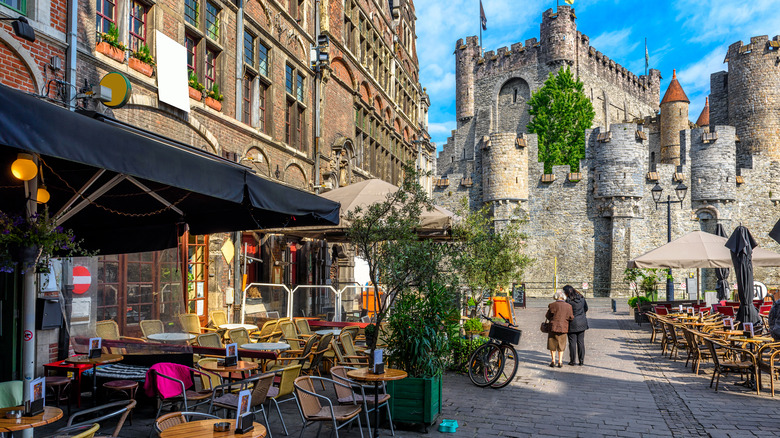Restaurants can be one of the most memorable parts of any trip, from the cute cafés in European cities to the luxurious eateries serving gourmet meals. For many travelers, trying new and delicious food is one of the main reasons to even board a plane in the first place.
However, choosing the wrong spots can leave a bad taste in your mouth (sometimes literally) . Falling for a tourist trap restaurant can lead you to feeling disappointed, overcharged, and hungry. Not only that, if you don’t realize an establishment is geared toward tourists, you may assume a destination’s food is far worse than it truly is.
To avoid these subpar restaurants once and for all, Explore spoke exclusively with Chelsea Dickenson, an experienced traveler and the founder of Cheap Holiday Expert. One of her best tips is to ditch the big, crowded streets when you’re ready to eat. “A big red flag is the location,” Dickenson shared. “The closer a restaurant is to a popular tourist attraction, the higher the chance that it’s a bit of a tourist trap!” The travel expert suggested heading a few blocks away from the main streets to find hidden gems.
Consider the source before choosing a restaurant

European destinations are often used to serving tourists from all over the world, and as a result, it can be difficult to detect which spots are truly authentic and which are focused on catering to travelers’ tastes. To narrow down the options and find the best restaurants when traveling, Chelsea Dickenson prefers going straight to local sources for recommendations. “I love asking my taxi drivers, the hotel staff, and even people I meet out and about what their favorite place is that they’d visit with friends,” the travel expert revealed.
Of course, this can be hard to do when you’re researching a destination from home. Still, remember to take online reviews with a grain of salt, as Dickenson noted that ratings can be influenced by tourists looking for, say, an Instagrammable spot rather than an authentic meal.
On that note, don’t pressure yourself to choose all your restaurants in advance. The avid traveler explained, “I’m quite relaxed when I go away — I like to be spontaneous! But there [are] some places that have really surprised me, that the common practice is booking ahead.” With that said, she usually skips reservations when exploring a new place. “As long as reservations aren’t imperative, I think the best approach is to book one or two meals but then hit the streets and see what takes your fancy!”
Think outside the box to find authentic eats

A trattoria in Italy, a café terrace in France, a table with an ocean view in Greece — some experiences are simply a must when visiting certain European countries. Still, going for the stereotypical restaurants on vacation can lead you to some pretty overrated tourist traps. Chelsea Dickenson told Explore that opting for a less conventional eatery can often be much more rewarding for both your taste buds and your wallet. “If you’re on a budget and in an expensive city, I love checking out the bars, restaurants, and cafeterias in student’s unions. I once had a great lunch at the food hall in Trinity College in Dublin!” the expert shared.
Another creative, though still delicious, option is to visit a local food market. As Dickenson explained, traditional markets are typically stocked with plenty of fresh seasonal foods, while trendy food markets offer items that may be more appealing to tourists (even if the quality isn’t up to par). Alternatively, Dickenson suggested hitting up a supermarket and creating a picnic with the local treats that catch your eye.

